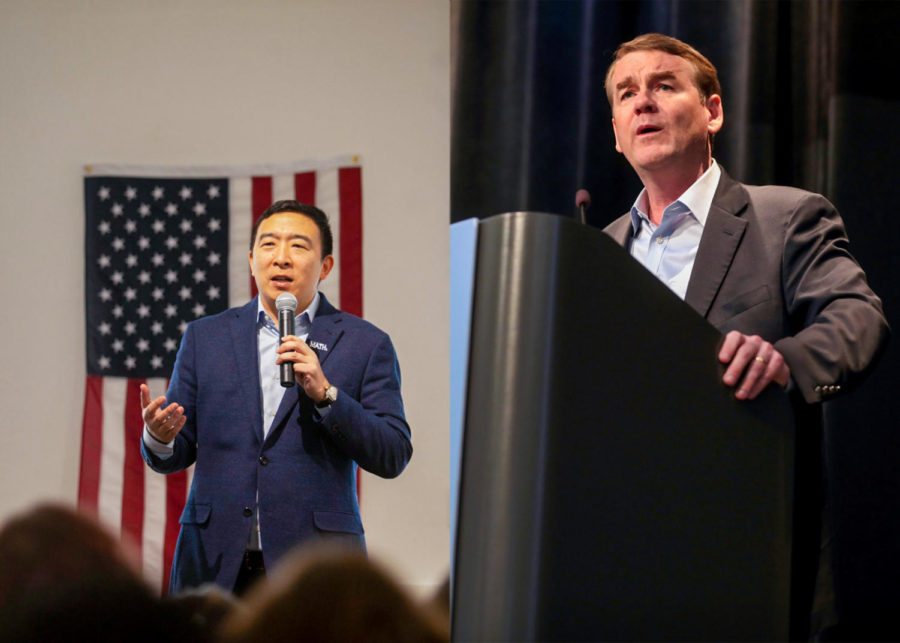Several presidential candidates end campaigns following New Hampshire primary
Andrew Yang and Michael Bennet announced the suspension of their presidential campaigns following the 2020 New Hampshire Democratic primary.
February 11, 2020
For years the early voting states of Iowa and New Hampshire have reshaped presidential primary elections, boosting some candidates while hindering others.
Iowa and New Hampshire have long been the states voters turn to in order to narrow down the playing field and determine the next party nominee.
There has only been one time in the history of the Iowa caucuses where a candidate who finished lower than third went on to win a party’s nomination. This is part of the reason presidential candidates use the phrase “three tickets out of Iowa.”
In previous elections, there has been an increase in candidates dropping out after Iowa’s caucuses and the New Hampshire primary.
Andrew Yang ended his presidential race after the New Hampshire primary, with 30 percent of precincts reporting Yang was in eighth place with 2.9 percent support.
Yang finished with less than 1 percent of state delegate equivalents in the Iowa caucuses.
Yang spoke on stage in New Hampshire to his supporters and announced the end of his 2020 presidential campaign.
“Although there is great work left to be done, you know I am the math guy and it’s clear tonight from the numbers that we are not going to win this race,” Yang said. “Endings are hard, New Hampshire, but this is not an ending this is a beginning.”
Sen. Michael Bennet also ended his presidential campaign.
Bennet received the 0.3 percent of votes cast in New Hampshire with 30 percent of precincts reporting.
“I feel nothing but joy tonight as we conclude this particular campaign and this particular chapter,” Bennet said to supporters in New Hampshire.
Bennet told his supporters that he would support whoever wins the Democratic nomination.
“I will support the nominee of my party no matter who it is,” Bennet said.
When dropping out from the race, candidates may cite many reasons said Mack Shelley, Iowa State professor and chair of the political science department. Candidates drop out because of low polling, low funding or him or herself feels that they are finished with the race.
“A candidate his or herself may decide that ‘well, we are just not going to make a breakthrough,’” said James McCormick, professor of political science at Iowa State.
Funding can make or break a candidate’s campaign.
“Ultimately, what determines whether a candidate remains alive and kicking in a campaign is a continuing supply of large amounts of campaign funds and the best top-level campaign staff that money can buy,” Shelley said.
A factor could be campaign financing, funding from sources might drop off, donors probably could say “this candidate not going to make it”, McCormick said.
“There may be some candidates that have self-funded their campaign like Mike Bloomberg [who] has all that money, even if he has not done so well in the primaries, he might still go on,” McCormick said.







